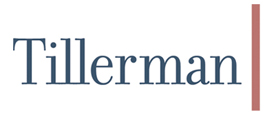August earnings revealed the divides shaping today’s retail landscape. Walmart’s scale continues to drive growth while Target faces turbulence, department stores pursue unconventional plays, and apparel brands make bold consolidation moves. Beneath it all, job cuts and slowing sales underscore the urgency of adaptation across the sector.

Walmart once again demonstrated its scale advantage, posting a 4.6% sales increase despite higher prices weighing on consumer sentiment. The numbers underscored the retailer’s ability to capture market share across categories and suggested shoppers are consolidating spending around perceived value.
Target, by contrast, remains unsettled. The retailer’s leadership transition culminated in the naming of a new CEO—an announcement that drew a lukewarm response from investors. Operational challenges persist, including strained employee morale and waning customer engagement. Adding to the turbulence, Target said it will end its Shop-in-Shop partnership with Ulta, signaling a rethink of its store-within-store strategy.
Dillard’s reported a 1% sales increase in Q2, modest but better than expectations, though profits declined. The company also made a bold move in real estate, buying a mall in Texas to keep it from slipping into disrepair under less invested ownership. Kohl’s, meanwhile, continues to show signs of life on the margin side, though sales remain in decline. The retailer also appointed a new CTO to accelerate technology initiatives, signaling where leadership sees its path forward.
PVH delivered a strong Q2 and raised its revenue outlook for 2025, cementing its place among the sector’s outperformers. Gildan made waves with plans to acquire Hanes, pending regulatory clearance, in what could reshape the basics apparel landscape. Saks, however, remains mired in difficulty, still working to rebuild frayed vendor relationships and manage overdue payments.
Claire’s narrowly avoided liquidation, with Ames Watson stepping in at the last minute, a deal that will keep at least 800 stores open. The chain’s struggles spotlight how mall-dependent retailers remain exposed to declining foot traffic. Bath and Body Works, facing a similar challenge, has chosen a different tack—launching in 600 college stores to reach younger consumers directly.
Overall July sales were up 6%, showing some resilience, but growth is slowing, and despite some bright spots, the broader environment remains difficult. Retailers have cut staff at 250% higher levels than last year, highlighting the pressure of rising costs, shifting traffic patterns, and the urgent need for structural adaptation.
Taken together, the quarter’s results suggest resilience at the top, fragility in the middle, and urgency at the margins.




